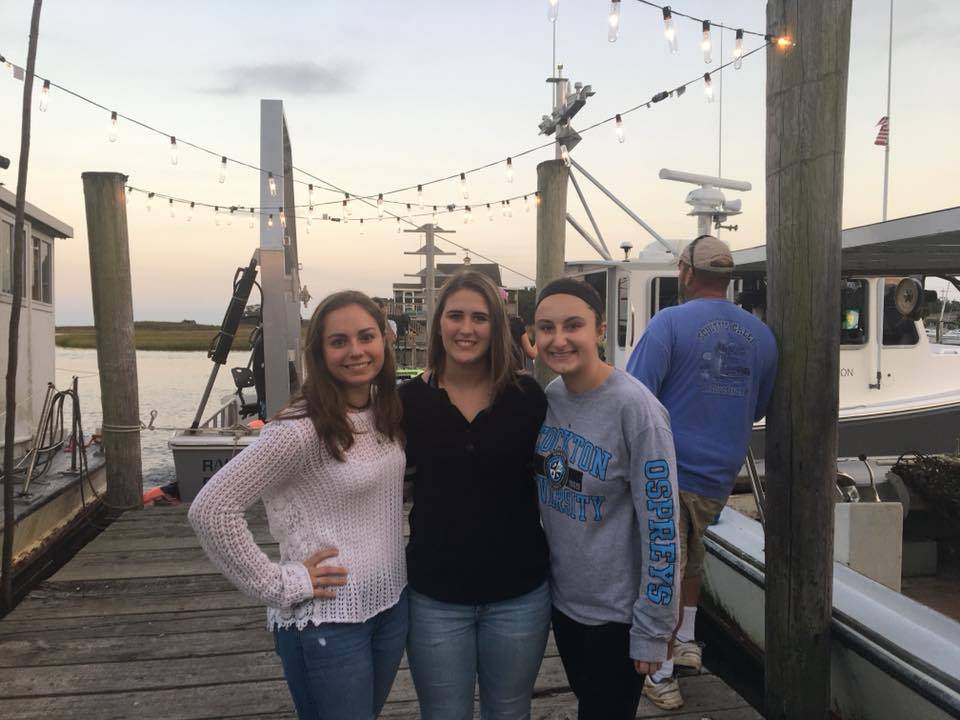Experiential Learning
 Education takes place outside the classroom as well as during course modules. With
the Experiential Learning Requirement, Honors students can take their passion and
commitment to the wider global, national and local community. A range of courses can
be used to fulfill the Experiential Learning requirement, tailored to each students'
major and interests. Some programs that apply are service learning courses, internships,
upper-level research, clinicals, student teaching, and performance courses. Off-campus
programs, such as study abroad or the Washington Internhip, can also be applied to
the Experiential Learning component.
Education takes place outside the classroom as well as during course modules. With
the Experiential Learning Requirement, Honors students can take their passion and
commitment to the wider global, national and local community. A range of courses can
be used to fulfill the Experiential Learning requirement, tailored to each students'
major and interests. Some programs that apply are service learning courses, internships,
upper-level research, clinicals, student teaching, and performance courses. Off-campus
programs, such as study abroad or the Washington Internhip, can also be applied to
the Experiential Learning component.
Honors Co-Curricular Requirements
Honors students strive to make the world a better place in all sorts of ways. They tutor in math, writing skills, and financial literacy. They support blood drives and organize basketball clinics for young people with disabilities. They join with other civic-minded students in on-campus organizations as well as in their own communities.
What, exactly, are the Honors Co-Curricular Requirements?
- 10 hours devoted to helping to make the world a better place (E.g. volunteering, tutoring, creating for the community)
- 2 speaker sessions
- 2 additional Honors events
Who participates?
NEW STUDENTS must complete the Honors Service Requirement in their first semester in the Honors College.
CONTINUING STUDENTS must complete the Honors Service Requirement for at least one semester within an academic year.
Students who have spent a certain number of semesters in the Honors College are exempt from the Honors Service Requirement. Students entering as freshmen are exempt after 8 semesters; students entering as sophomores are exempt after 6 semesters; students entering as juniors are exempt after 4 semesters.
Useful Co-Curricular Requirement Contacts:
E-Board Student Director: Riya Goyal (goyalr@go.stockton.edu)
E-Board Student Director of Service: Kasib Khan (khank7@go.stockton.edu)
Experiential Learning, as defined by the National Collegiate Honors Council (NCHC):
- Curricula typically emphasize exploration and/or discovery rather than acquisition of specific knowledge sets; a focus on hands-on, usually supervised, practical engagement with usable outcomes can also occur.
- Programs focus on student-driven learning projects facilitated by faculty who provide no necessary, single conclusion to be drawn by all or many students. Programs often include international experience and active learning.
- The process often involves continuous reflective writing and oral presentation as the students articulate their discoveries and document their personal growth; this process may apply to all other modes described here.
Service Learning and Leadership, as defined by the NCHC:
- The major emphasis is community engagement: often a single project or a series of collaborative projects that address real-world problems and through which students acquire practical experience and skills that lead to engaged citizenship. Some opportunities are offered for credit, some not.
- Curricula are frequently decentralized or selected from a menu of departmental honors courses. Students may also earn credit for philanthropic or humanitarian service off campus.


